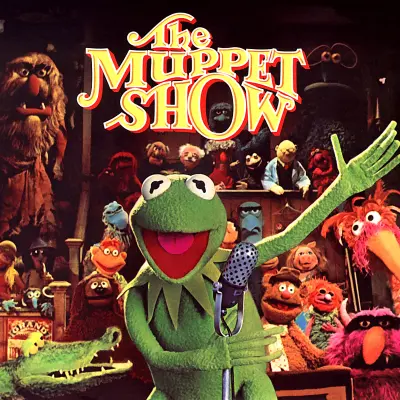The Muppet Show was ground zero for Jim Henson's metafictional playfulness
-

With all five seasons of Henson's 1976-1981 series now available on Disney+, Matt Zoller Seitz explains the true genius of the Muppets. "They aren’t just lovable talking creatures with personalities," he says. "They’re performers in a behind-the-scenes story that continues over the decades no matter what show or film they’re doing. They chase work and get cast in roles, some of which are perfect for them, others laughably wrong. And when they try their best and fail — or when they’re phoning it in that week because of personal issues, such as Kermit and Miss Piggy’s never-ending relationship drama, or Fozzie Bear’s unbearable (Wakka wakka!) feelings of inadequacy — we take it as personally as they do, because they’re not just fictional characters in a self-enclosed story. They’re dear friends who happen to be performers and whose success and happiness we remain invested in, whether a given project seems promising or ill-advised. Their lives are ruled by the anxieties and ambitions that all performers deal with, no matter how small or large the project they happen to be involved in at that moment. The Muppet Show — a five-season ’70s syndicated comedy-variety series spun off from Henson’s work on Sesame Street, viewable in its entirety on Disney+ starting (Friday) — was ground zero for Henson’s metafictional playfulness, a conceptual step up from, and logical evolution of, everything he and key collaborators like Frank Oz had been doing with puppetry up to that point. Earlier live-action shows had used the framework of 'here’s a troupe of lovable performers going about their lives while doing their job' — The Jack Benny Program, I Love Lucy, and The Dick Van Dyke Show were three of the best — but until The Muppet Show, nobody had done it with (deeply) felt creatures, and the artificiality let the show veer into fourth-wall-breaking sight gags and surrealism, the sort of thing Warner Bros’ Looney Tunes did so brilliantly in shorts like Duck Amuck. One of the best iterations of this joke can be seen in the first Muppet theatrical feature, 1979’s The Muppet Movie: the initial leg of Kermit and Fozzie’s road trip to Hollywood brings them to a church where Dr. Teeth and the Electric Mayhem orchestra is practicing, and when Fozzie starts to tell the musicians everything that’s happened up to that point, Kermit tells him not to do that because “it’ll just bore the audience” and has them read the screenplay instead."
ALSO:
- The Muppets are appealing because they have substance: "Disney characters may take on many parts — a bandleader, a giant killer — but unlike cartoons, the Muppets, like all puppets, have actual substance. They can act and improvise with humans in four-dimensional space-time," says Robert Lloyd. "They can guest on a talk show (or guest host one), and have; present at the Oscars, and have; or perform a Tiny Desk concert for NPR, and have. The Mickey Mouse you meet at Disneyland is not, whatever parents may tell their children, Mickey Mouse; it is impossible to meet Mickey Mouse. But you can meet and speak with Kermit, provided his official puppeteer is attached — it’s been Matt Vogel since 2017 — and it will be the real Kermit."
- How to build the most sensational, inspirational, celebrational Muppet Show episode
- Here are the 25 essential The Muppet Show episodes
TOPICS: The Muppet Show, Disney+, The Muppets, Jim Henson, Retro TV
